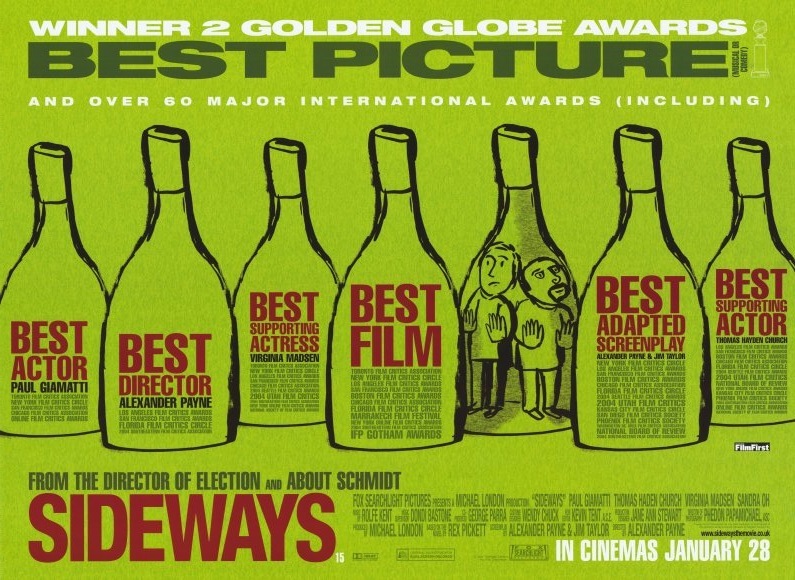On the surface, it’s a story about relationships and useless babbling about wine. Beneath the surface, it’s one of the most relevant character studies in the history of dramedies, touching upon so many issues plaguing the modern human condition it’s like one, big cinematic therapy session.
In a way, Sideways changed how audiences perceived independent film as a whole–that “indies,” for whatever definition you prescribe, can be the best of both worlds. While the film is not quite a romantic comedy, there’s an underlying idea here that romance is, by definition, imperfect. So are careers, and marriages. And life. Yes, that’s all obvious. And a little stale. But the way Alexander Payne and Rex Pickett detail these two men, Miles and Jack, as wayward heroes who are neither heroic nor anti-heroic lends a certain realism to the whole story, and in the process, sort of skews the genre. Each scene has a certain compelling normalcy, where seemingly dull conversations have a life and meaning of their own. If nothing else, this is dialogue writing at its finest.
While we may not sympathize with the characters’ situations precisely, we’ve all been there to varying extents. Provided we’re of a certain age, anyway. Because like a vintage Pinot, Sideways is best consumed by those with the experience to understand the complexities of what it’s all about.

